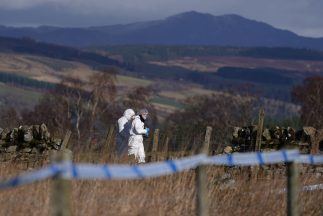Killers who refuse to disclose the whereabouts of their victims’ bodies could see this counted against them when they apply for parole for the first time.
The Scottish Government has laid a series of changes to parole board rules at Holyrood in a bid to simplify and modernise current procedures – which are more than 20 years old.
Justice Secretary Keith Brown said the changes “reflect the Scottish Government’s wider commitment to putting victims at the heart of the justice system”.
The measures, which are due to come into force from April 2023, will also mean some victims can opt-out of receiving notifications about the offender involved in their case, in a bid to prevent retraumatising them.
The changes will also allow the parole board to reconsider cases where a decision has been made not to release a prisoner, under certain conditions.
In addition, the board will be able to appoint a representative to act on behalf of those prisoners who are deemed to lack the capacity to appoint one themselves.
Brown said: “These new rules reflect the Scottish Government’s wider commitment to putting victims at the heart of the justice system, by making it clearer and easier for victims and others to understand.
“The current parole board rules are more than 20 years old and have undergone lots of changes and amendments, making them complex and inaccessible.
“Simplifying and modernising the rules will help people better understand what is often seen as a difficult and convoluted procedure and improve the process for everyone involved.”
John Watt, chairman of the parole board for Scotland, said the changes should make the system “more accessible and understandable for all involved in, or affected by, the parole process”.
Scottish Conservative justice spokesman Jamie Greene said the changes are “a small step in the right direction in improving the rights of victims and their loved ones”.
But he added: “The SNP Government have still failed to go far enough. This change to the rules still does not give a guarantee that the failure to disclose the whereabouts of a victim’s body will be grounds to reject a prisoner’s release from their sentence.
“Humza Yousaf made a commitment to fully ensure parole boards had this power when he was justice secretary, yet families are still being left in agonising limbo.
“Not knowing where a body lies is deeply distressing for families like Suzanne Pilley’s. That is why Suzanne’s Law forms a key part of my Victims Law, which I have brought forward to the Scottish Parliament.
“That would reassure victims’ families that no prisoner would ever be released if they remained silent on what they had done with the remains of a victim.
“Keith Brown has taken a tentative move forward, but if he wants to truly show support for victims, he should start the new year by backing my Victims Law.”
Follow STV News on WhatsApp
Scan the QR code on your mobile device for all the latest news from around the country


 iStock
iStock























